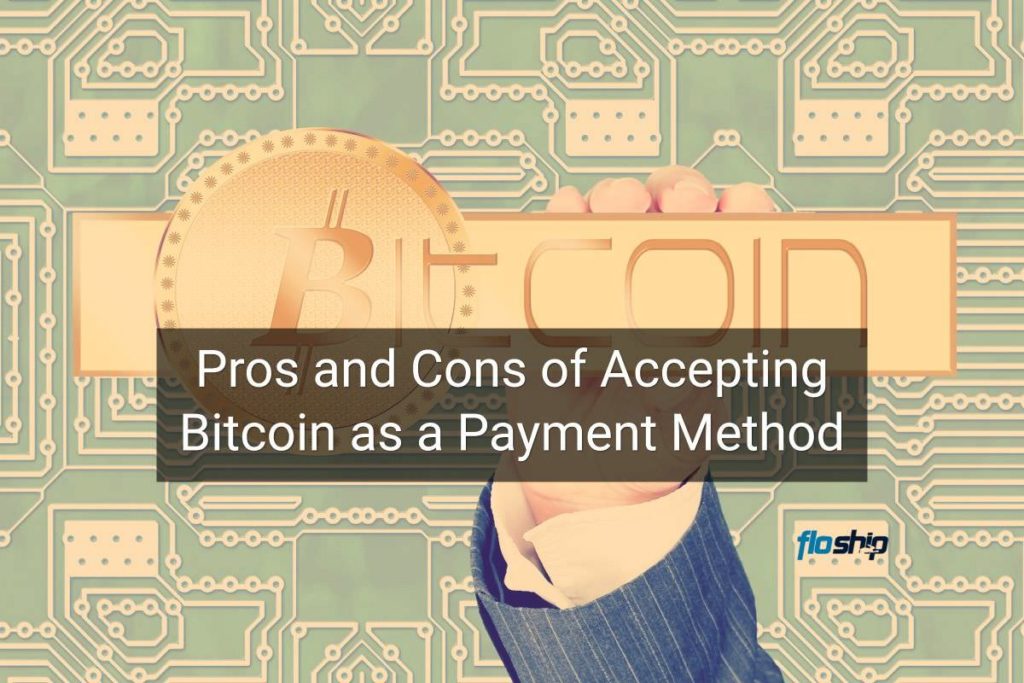As an e-commerce store owner, you want to provide users with as many payment options as possible, but you don’t want to increase your own risk for fraudulent payments. Increased options for your customers mean increased conversions and sales. Bitcoins hasn’t hit mainstream just yet, but several large organizations, including Amazon, have discussed offering it as a payment option. Large organizations have the budget to maintain risk, but small businesses must limit as much of it as possible. If you’re considering bitcoin for your customers, here are some pros and cons.
Pro: Zero Chargebacks
One of the biggest risks for online stores is fraud. You take a credit card payment, but days later you can receive notice that the charge was reversed. You’re stuck footing the bill because you’ve already sent the product. You not only lose money, but you also lose your product to fraud. Even the most secured businesses fall victim to fraud sometimes.
Bitcoin technology is created in a way that disallows payment reversal or chargebacks. A wallet has a set amount of money in it, and customers pay from their wallet to yours. Payments are a one-way only transaction, so you can’t lose money due to stolen credit cards. As a matter of fact, the customer takes the risk of you never sending product even though you’ve been paid.
Pro: You Determine Transaction Fees
Any merchant will tell you that credit card fees are a killer. You can pay up to 30% in transaction fees depending on your processor. PayPal only charges 3-4% and then a fee per transaction. It seems like very little, but these fees add up if you sell low-cost products.
With bitcoin, the fees you pay determine the speed at which you receive your money. Transaction fees are paid to the computers that host the network. The processing power is distributed among computers on the internet, and the network owners make money by allowing you to use their system to process transactions.
You can pay no fees, but then it takes longer to receive money. Pay the transaction fees and you receive money much faster. You determine how you want to schedule fees based on how quickly you want payments.
“It seems unlikely that Bitcoin will ever fully replace fiat currency. However, there are a lot of indications that it could play an important role in the global economy, becoming a modern replacement for the outdated gold standard.” (Source: Distributed Truth – The Future of Bitcoin)
Con: Poor Security
People who program bitcoin applications aren’t necessarily security experts. Most of these developers have finance and development backgrounds, but it takes an entirely different set of skills to understand hackers and protect against malware.
With bitcoin, poor security is more than just losing files and restoring data from a backup. In fact, being hacked means you can lose your entire wallet’s money, which in turn could be all of your business revenue if it’s purely in bitcoin. Some bitcoin operators have lost millions and were taken offline due to successful attacks.
You can overcome some of this risk by using a well-known, outstanding payment processor. Ones that have been in existence for a while have either been hacked or invested in protection against attackers.
Con: Volatile Market
Just because you sell a product for $1,000 one day doesn’t mean you’ll have $1,000 in bitcoins the following day. The bitcoin market is very volatile, and it can go up or down in a matter of hours. It’s not uncommon for your bitcoin value to be halved within a few hours if the market crashes. You can get around this issue by converting to your local currency at the time of the transaction.
You wouldn’t want to primarily take bitcoins, because people don’t spend money when the market goes up. As a matter of fact, users lose money if they buy products using bitcoins when the value increases. This means that your business can get hit hard during market increases.
Although this is a disadvantage for your business, if you take bitcoins and have your wallet loaded, then you too make money as their value increases.
Pro: Anonymity
Some people would consider anonymity from paying customers a con, but it’s a pro for people who are concerned with privacy. Bitcoin is infamous for being the payment preference of people offering illegal services. While bitcoin can be used for illegal services, it’s still a legitimate way to take payments. Because of its anonymity, bitcoins have wrongly gotten a reputation for being “illegal” or “shady,” which most businesses want to avoid.
Anonymous payments are beneficial for vendors who sell digital products. Buyers in this market have a higher sense of cyber security and usually prefer anonymous transactions.
If you decide to add bitcoins as a payment method, you need a developer to help you add it to your shopping cart. Work with one of the popular bitcoin processors to avoid issues with poorly secured systems. Once you have bitcoins included in your shopping cart, you can take payments and automatically convert them to local currency to avoid inflation issues.
More Ecommerce Payment Tips
- A Guide To Choosing The Best Payment Gateway For Your Business
- 9 Ways to Reduce Shopping Cart Abandonment
- Borderfree E-commerce Competitive Pricing Strategies?

Ready To Upgrade Your Logistic Solution?
Speak to Floship ecommerce logistic consultant about improving your global support chain today





